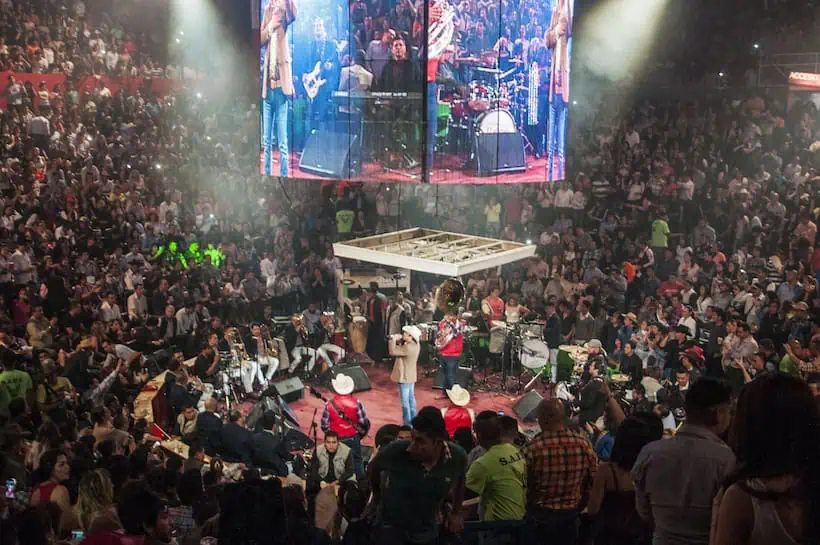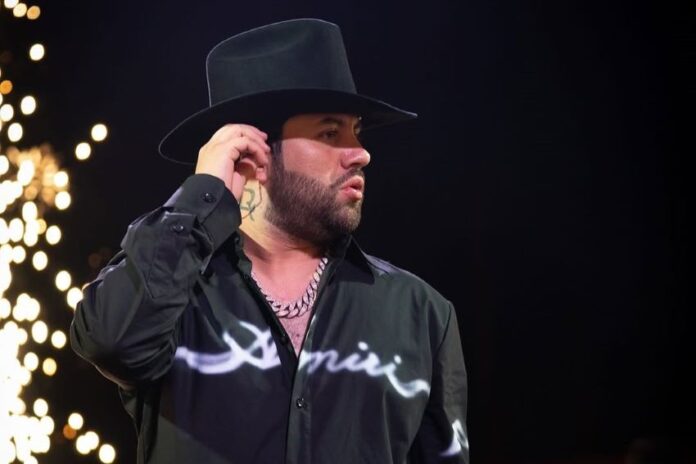When popular regional musician Luis R. Conriquez declined to perform his hit narcocorridos (drug ballads) at his April 11 concert in Texcoco, México state, the crowd began to riot, trashing the stage and fighting with security.
Conriquez, who specializes in corridos bélicos (songs whose lyrics are mainly focused on drug trafficking and the ongoing cartel turf battles) and other Sinaloa-style genres, told the audience he was adhering to the state’s regulations against such narcocorridos.
🚨 No cantó corridos y le destrozaron su equipo de audio e instrumentos. Así le tocó anoche a Luis R. Conriquez, en la Feria del Caballo.
Desde antes lo había anunciado en sus historias: “Entramos a una nueva etapa, mi gente: nos sumamos a la causa de cero corridos”. pic.twitter.com/8ybwoGPBoy
— Pamela Cerdeira (@PamCerdeira) April 12, 2025
The riot in Texcoco occurred just two weeks after the regional band Los Alegres del Barranco caused a stir by performing a corrido that pays homage to a drug lord. That prompted President Claudia Sheinbaum and other authority figures to condemn songs that advocate violence and glorify crime.
In light of the incident, the United States canceled the visas of Los Alegres, and has threatened to do the same for other groups that perform narcocorridos. The threat takes aim at the livelihoods of global stars like Peso Pluma and others, who often make much of their earnings in the U.S. market.
Conriquez, whose songs regularly chart on Billboard’s Hot Latin list in the U.S., may be keeping an eye on his bottom line as well: The next stops on his current tour include New York, Pennsylvania and Arkansas.
In Mexico several states, México state among them, responded by issuing or enforcing regulations and decrees prohibiting the performance of corridos bélicos in public events.
México Governor Delfina Gómez issued a ban on songs glorifying violence, specifically informing the authorities in the cities of Texcoco, Metepec and Tejupilco where concerts were scheduled. The decree hinted at hefty fines for performers, producers and promoters.
According to Conriquez and his manager Freddy Pérez, those in attendance were not informed in advance of the restrictions to the performer’s song list. When the artist explained that he was simply obeying the protocols established by local and state authorities, the crowd booed.
Some audience members then became aggressive, hurling objects at the band on the stage located in the middle of the arena. Shortly thereafter, the musicians fled the stage and rioters began destroying the instruments and equipment abandoned by the performers.
“We feared for our lives,” Pérez said in a public apology issued the following day, “and we left the arena without any security.”

Conriquez also issued a statement, saying that “this is a new era, my friends. It feels awful not being able to perform the songs that the public wishes to hear, but we support the ‘no corrido’ policy and want to move forward.”
On Sunday, Sheinbaum condemned the violence but sought to make clear that despite regulations imposed in some states, she is not in favor of prohibiting narcocorridos.
“We are not looking to regulate narcocorridos, nor are we in favor of censorship,” she said. “We simply would like to promote alternative musical content through an educational process to which we can all contribute.”
Sheinbaum also emphasized that she opposes the glorification of violence in popular culture.
The México state government declared that it will continue to enforce the “no narcocorridos” policy, insisting that authorities will charge those who violate the decree with glorifying violence.
With reports from Infobae, El Financiero and El Gráfico
